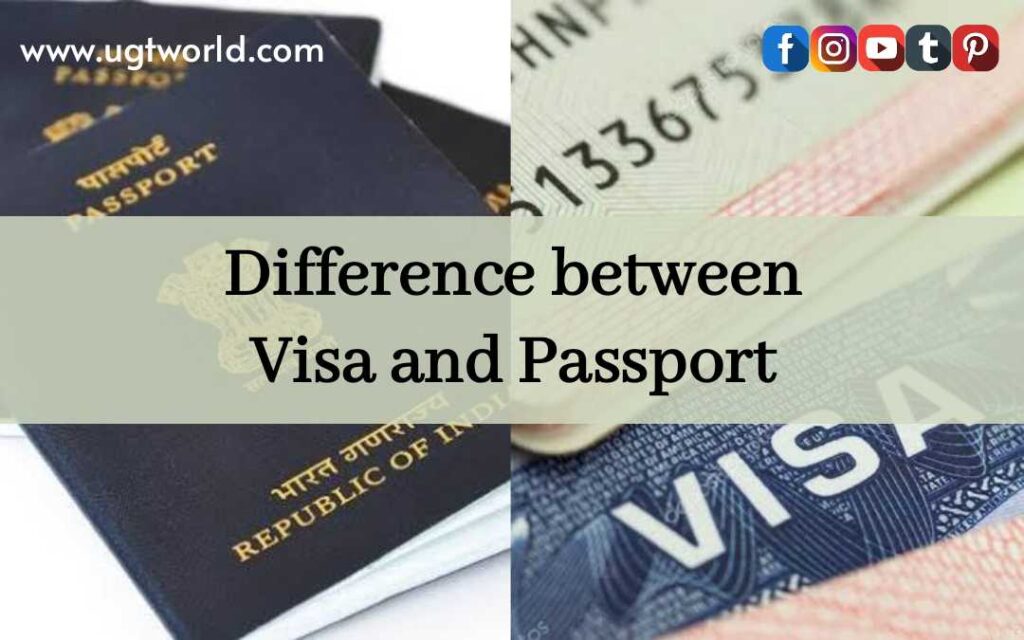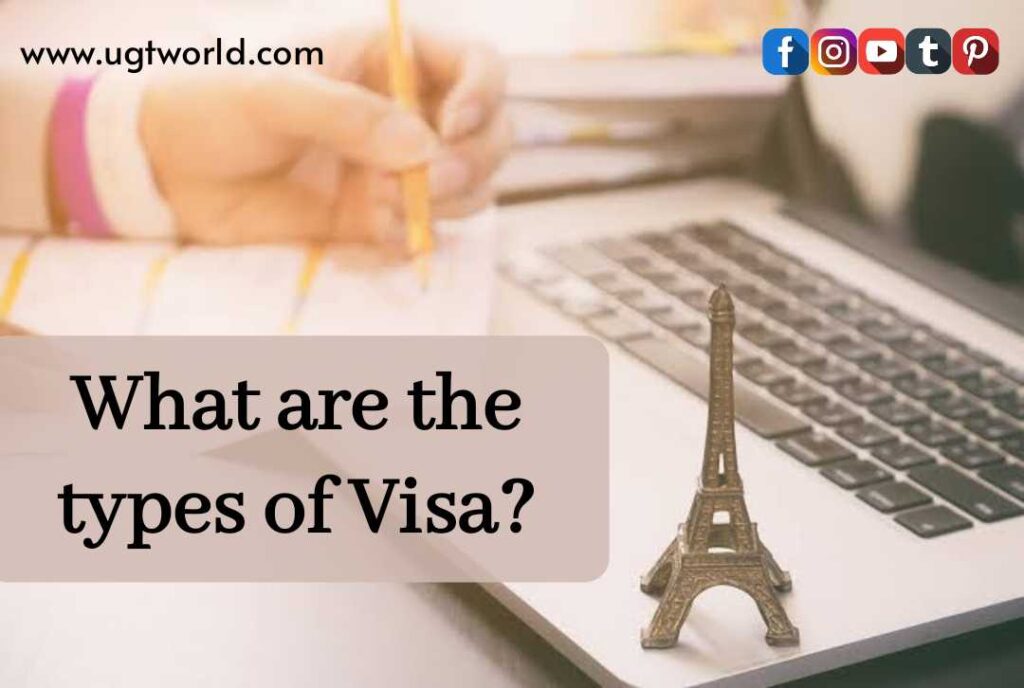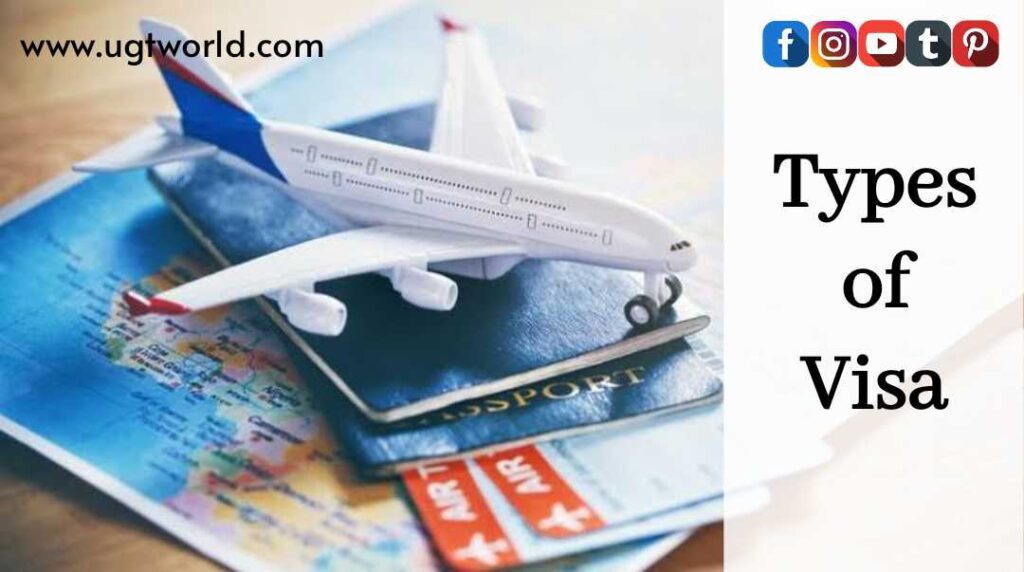
Before traveling foreign countries, be sure you know the differences between a passport and a visa because you may need both. In this article, know what is Passport and what is Visa and it’s types.
What is a Passport?

The main difference between a passport and a visa is that a passport is issued to a country’s citizens for international travel and identification.
- A passport is used to verify one’s country of citizenship. If traveling outside your country, it is used to regain entry into your country of citizenship.
- Passports include your photo, name, birth date, gender and physical characteristics.
- For U.S. citizens, some countries only require a passport for re-entry. Other countries may require a visa before entry. You should confirm if a country-specific visa* is required before traveling.
- Diplomats and government officials are granted different passports than what’s given to regular travelers.
What is a Visa?

The main difference between a visa and a passport is that a visa is an endorsement placed within a passport that grants the holder official permission to enter, leave or stay in a country for a specified time period.
- The most common visa types are tourist, student, work and transit visas.
- Depending on where you are traveling, a visa can be valid for single or multiple visits.
- Some visas require an application to be filed prior to entering the country and other visas are granted upon entering the country.
- Certain countries require an interview or medical screening prior to applying for a visa.
What are the types of Visa?

Tourist Visa (T) – Tourist Visa is issued to visit India for tourism purposes. Tourist visa issued is non-extendable and non-convertible. Change of purpose is not allowed.
Business visa (B) – Business Visa is granted to a foreign national who wants to visit India to establish/explore possibilities to set up industrial/business venture or to purchase/sell industrial products in India.
Employment Visa (E) – Employment Visa is granted to a foreign national who wishes to come to India for Remunerative employment/ Intra-company transfers in the company.
Student Visa (S) – Student Visa is issued for undertaking under-graduation, Masters or other higher educational studies in recognized Universities or Institutions in India.
Transit Visa (TR) – Transit visas are issued for changing flights and travelling to another country. Transit should be the sole purpose and stay should not be misused for work or business.
Journalist Visa (J) – All Journalists including photographers/film producer or director (other than of commercial films), a representative of a Radio or Television organisation, travel writer or travel promotion photographer etc. are required to apply for Journalist Visa only, even if the visit to India is for reasons other than journalism.

Medical Visa (Med-1) – Medical Visa is meant for those foreigners whose sole objective of visit to India is to seek medical treatment in established/recognised/specialised Hospital/ Treatment Centres in India for serious ailments.
Medical Attendant Visa (Med-2) – Medical Attendant Visa is meant for the attendant / family members of the patient coming to India for medical treatment. The visa is co-terminus with Medical visa of the patient.
Conference (C) – Conference visa is granted to foreign nationals for attending a conference /seminar or workshop in India.
Entry (X) visa – Entry Visa is granted to Persons of Indian Origin, Foreign nationals married to Indian citizen/OCI/PIO card holder & their children and Foreign nationals owning property in India.
Write with us✍?
Greetings to Everyone from TeamUgtWorld! Anybody who wants to write whatever his/her Heart wants to. They can now publish their content with us on our platform @Ugtworld. For more information click on the following link…


